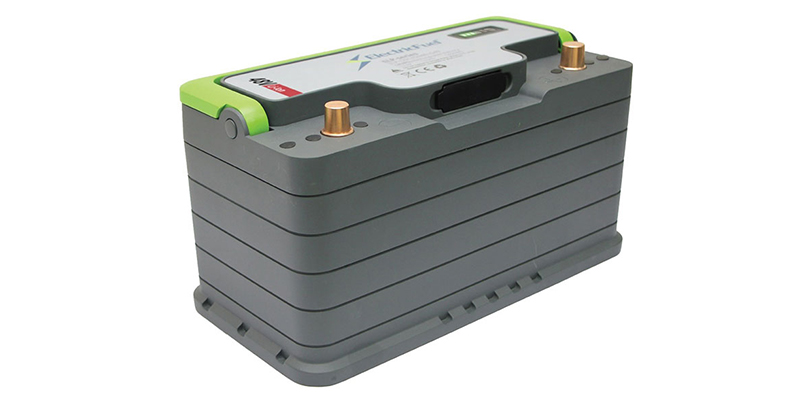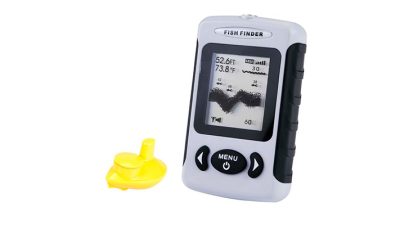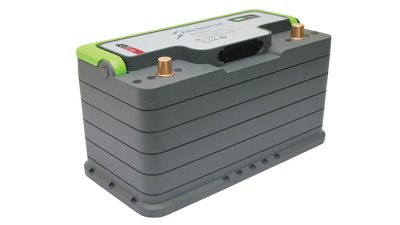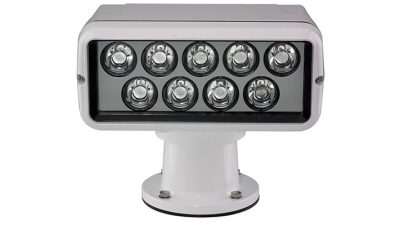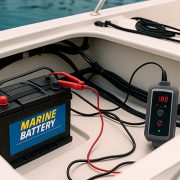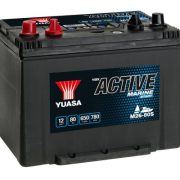Boat batteries are essential for powering various systems on your vessel, from starting the engine to running electronics and lighting. However, as with any electrical component, safety is a major concern. A common question that arises among boat owners and enthusiasts is: «Can a boat battery electrocute you?» The short answer is, under typical conditions, it’s unlikely. However, understanding the risks and taking appropriate precautions is crucial for safe boating.
In an electric boat, while the 12v battery is generally not strong enough to cause serious harm to the human body, it’s still possible to get shocked or feel a tingle, especially in salt water, which conducts electricity more effectively. If a 12v battery were to submerge, the risk of a shock increases slightly, but it’s not comparable to the risks posed by higher-voltage systems found in electric cars. While you won’t get electrocuted like you might imagine with a shark attack, it’s important to be cautious around any electrical system on your boat.
Understanding Electrical Shock and Electrocution
Electrocution occurs when a person comes into contact with a sufficient electrical current, causing injury or death. The severity of an electrical shock depends on several factors, including the voltage, current, the duration of exposure, and the path the electricity takes through the body.
Boat batteries, especially 12-volt or 24-volt systems commonly found on recreational boats, operate at low voltages. These low voltages are generally not enough to cause electrocution in the same way that household or industrial AC electricity (typically 120 or 240 volts) can. However, there are certain conditions where a boat battery can pose a serious risk.
How a Boat Battery Can Pose a Danger
1. Electrical Burns and Arcing:
While the voltage in a boat battery is low, the amperage can be quite high. If a battery short-circuits, it can cause arcing—a sudden, intense discharge of electricity. This can generate a lot of heat in a very short period, leading to burns or starting a fire. Arcing can also damage nearby electrical components.
2. Contact with Wet Surfaces:
Water is a good conductor of electricity, and boat batteries are often located in areas that can get wet. If you touch a battery terminal with wet hands or while standing in water, there’s a heightened risk of shock. While this shock may not be fatal, it can cause injury, especially if you are startled or lose your balance.
3. Electrolyte Burns:
Lead-acid batteries, commonly used on boats, contain sulfuric acid as an electrolyte. If a battery is damaged or leaks, contact with the acid can cause serious chemical burns. While this is not an electrical shock, it is still a significant risk associated with boat batteries.
4. Faulty Wiring and Improper Installation:
Improperly installed or damaged wiring can create unexpected hazards. For instance, if wiring insulation is worn or frayed, exposed wires can cause short circuits or create an electrical path that can deliver a shock.
5. Electric Shock Drowning (ESD):
While not directly related to the boat’s internal battery, it’s important to note that electric shock drowning can occur if faulty electrical systems leak current into the water. If someone swims near a docked boat with an improperly grounded electrical system, they could be exposed to dangerous currents.
Safety Precautions When Working with Boat Batteries
- Wear Protective Gear: Always wear gloves and safety glasses when working with boat batteries to protect yourself from acid splashes, electrical burns, or other hazards.
- Ensure Dry Conditions: Avoid working on the battery in wet conditions. Ensure your hands, tools, and the surrounding area are dry to minimize the risk of shock.
- Disconnect the Battery: Before performing any maintenance or electrical work on your boat, disconnect the battery. This simple step can prevent accidental shorts or shocks.
- Use Insulated Tools: When working around batteries, use tools with insulated handles to reduce the risk of accidental short-circuiting.
- Inspect for Damage: Regularly inspect the battery and associated wiring for signs of wear, corrosion, or damage. Replace any worn or damaged components immediately.
- Proper Ventilation: Lead-acid batteries produce hydrogen gas, which is highly flammable. Ensure the battery compartment is well-ventilated to prevent gas buildup, which could lead to an explosion if ignited.
- Correct Installation: Make sure your battery is securely mounted and properly installed according to the manufacturer’s guidelines. Loose connections or improper installation can increase the risk of short circuits and other hazards.
- Ground Fault Protection: Consider installing a ground fault circuit interrupter (GFCI) on your boat’s electrical system. A GFCI can detect even small leaks of current and shut down the circuit, preventing potential shocks or fire hazards.
>Can a Boat Battery Electrocute You : Conclusion
While a boat battery is unlikely to electrocute you under normal conditions, it can still pose significant risks if not handled properly. The main dangers associated with boat batteries include electrical burns, chemical burns from acid, and the potential for arcing. By following basic safety precautions—such as wearing protective gear, working in dry conditions, and regularly inspecting your battery and wiring—you can minimize these risks and ensure a safer boating experience.
In the rare case where a boat sinks or an electric boat battery becomes submerged in saltwate, there is a higher risk of electrocution due to the electric current traveling through the conductive water. This risk is heightened with high-voltage systems, such as those found in electric vehicles or boats using a trolling motor. However, in most cases with 12 volts or standard marine batteries, the danger of electrocution is minimal, even if a shark were nearby. It’s essential to avoid touching the battery in the water or placing yourself in the path of the current, especially with high-voltage systems. Using proper safety gear and understanding the risks of shore power and AC power connections can further prevent accidents on board.
Understanding the potential hazards and respecting the power of your boat’s electrical system is key to preventing accidents and enjoying your time on the water safely.

